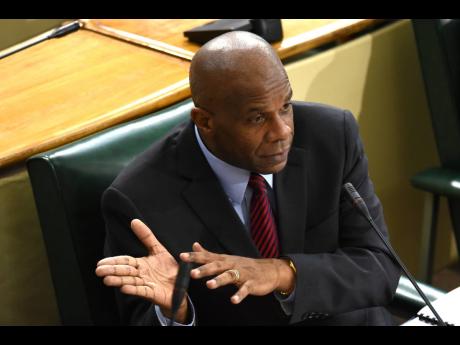Even with Christie, most have no confidence in corruption watchdog
More than half of the country does not have any confidence in the Integrity Commission, and the appointment of former contractor general Greg Christie as the executive director of the anti-corruption watchdog has done very little to bolster the confidence of the general public.
According to the results of an RJRGLEANER-commissioned Don Anderson poll, 53.3 per cent of those surveyed indicated that they have no confidence in the Integrity Commission when compared to the 46.7 per cent who said yes.
The poll was conducted between July 24 and August 3 and involved 1,071 respondents with a plus or minus three per cent margin of error.
The Integrity Commission, the Office of the Contractor General, and the Corruption Prevention Commission were merged to form the Integrity Commission, a single anti-corruption agency, in February 2018. Since its establishment more than two years ago, the first chairman has resigned, along with another commissioner. The current chairman, retired justice Seymour Panton, was appointed in August last year.
The commission is mandated to promote and enhance standards of ethical conduct for parliamentarians and public officials. It also strengthens measures for the prevention, detection, investigation, and prosecution of acts of corruption.
Despite the widespread lack of confidence, executive director of National Integrity Action, Professor Trevor Munroe, doesn’t believe that the commission is doing badly.
“Confidence in the Integrity Commission is headed in the right direction but needs to be urgently strengthened,” Munroe said.
“One measure is for the Integrity Commission to act more expeditiously in relation to prosecutions recommended by the director of investigations.”
The majority of Jamaicans (62 per cent) feel that nepotism and cronyism (favouritism) in awarding government contracts should be made criminal offences while 38 per cent disagree.
“Successive polls reveal that Jamaicans believe that the Government and the authorities are not doing enough to deal with corruption,” said Munroe.
“The fact that two of every three Jamaicans feel that cronyism and nepotism should be made criminal offences indicates one important legislative action that needs urgent attention,” he said.
Former contractor general Greg Christie was installed executive director of the Integrity Commission on May 18.
Christie, an attorney-at-law, has been a staunch advocate against corruption. But despite this, 57.1 per cent of the respondents polled do not believe that his appointment has strengthened their confidence in the commission, compared to 42.9 per cent who have a contrary view.
Since its inception, the commission has submitted several reports to Parliament based on investigations. One of the latest identified several people who it suggested committed criminal and administrative breaches at the state-owned oil refinery Petrojam. But days after the release of the report, the commission had to make a correction as it had inaccurately stated that Jamaica Labour Party councillor Richard Creary was part of a panel that selected the former general manager at Petrojam, Floyd Grindley, to that post.
TRAPPED BY LEGISLATION
Panton has called for the Integrity Commission Act to consider allowing the entity to speak on matters relating to investigations. The commission is currently muzzled by the so-called Christie gag – a clause inserted in the legislation to limit the latitude Christie enjoyed as contractor general.
“Definitely, as far as the commission is concerned ... we feel at the moment that we are trapped by the legislation in that it does not allow us to say anything, and at the same time, freedom of the press is such that the media say anything and everything, including falsehoods which we cannot even try to respond to,” Panton said during a press conference last year.
Munroe agrees with this call as he feels that the commission should be updating the country more frequently than once per year in an annual report.
“For this latter, I support the Integrity Commission’s recommendation that the law be amended to give the commission discretion to indicate what and whether investigations are being undertaken, at the same [time] due attention [is] to be paid to reputational damage,” he said.

